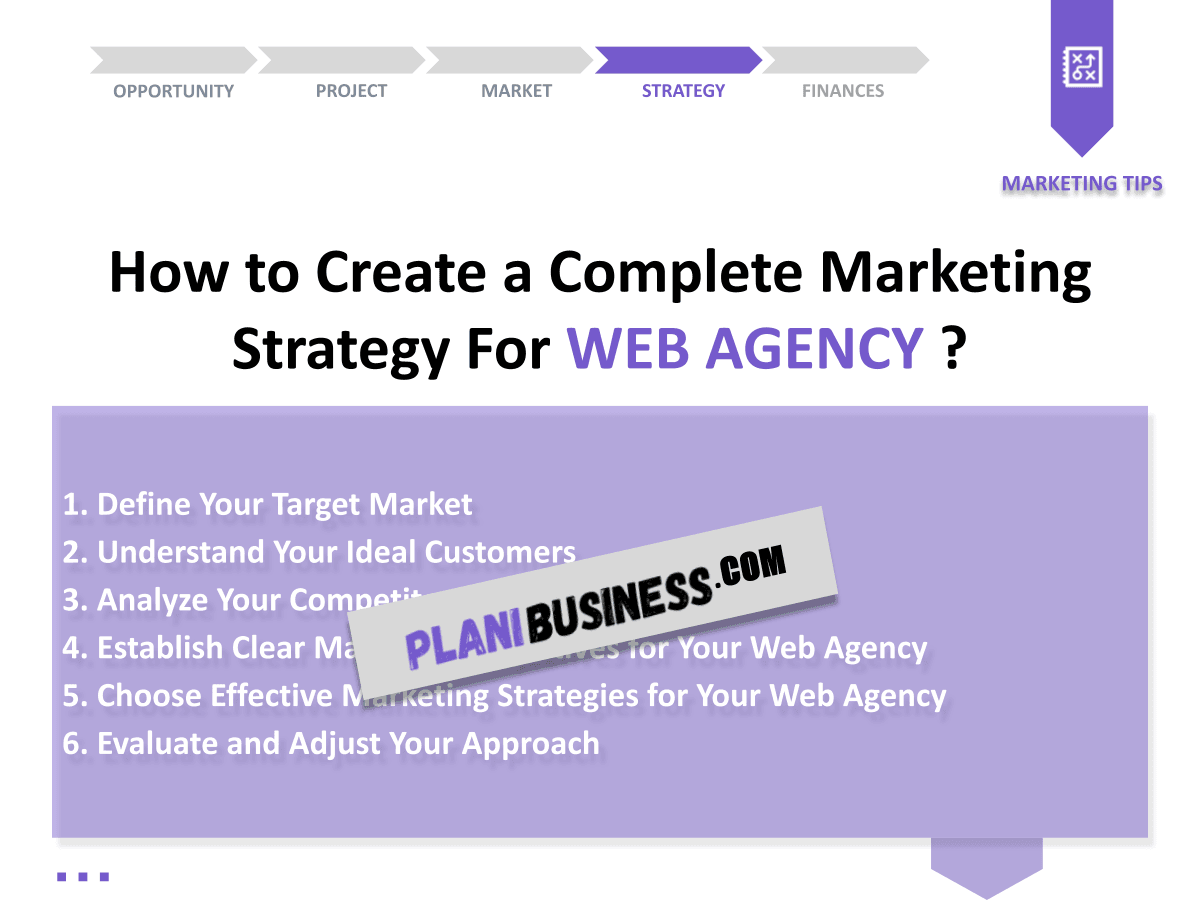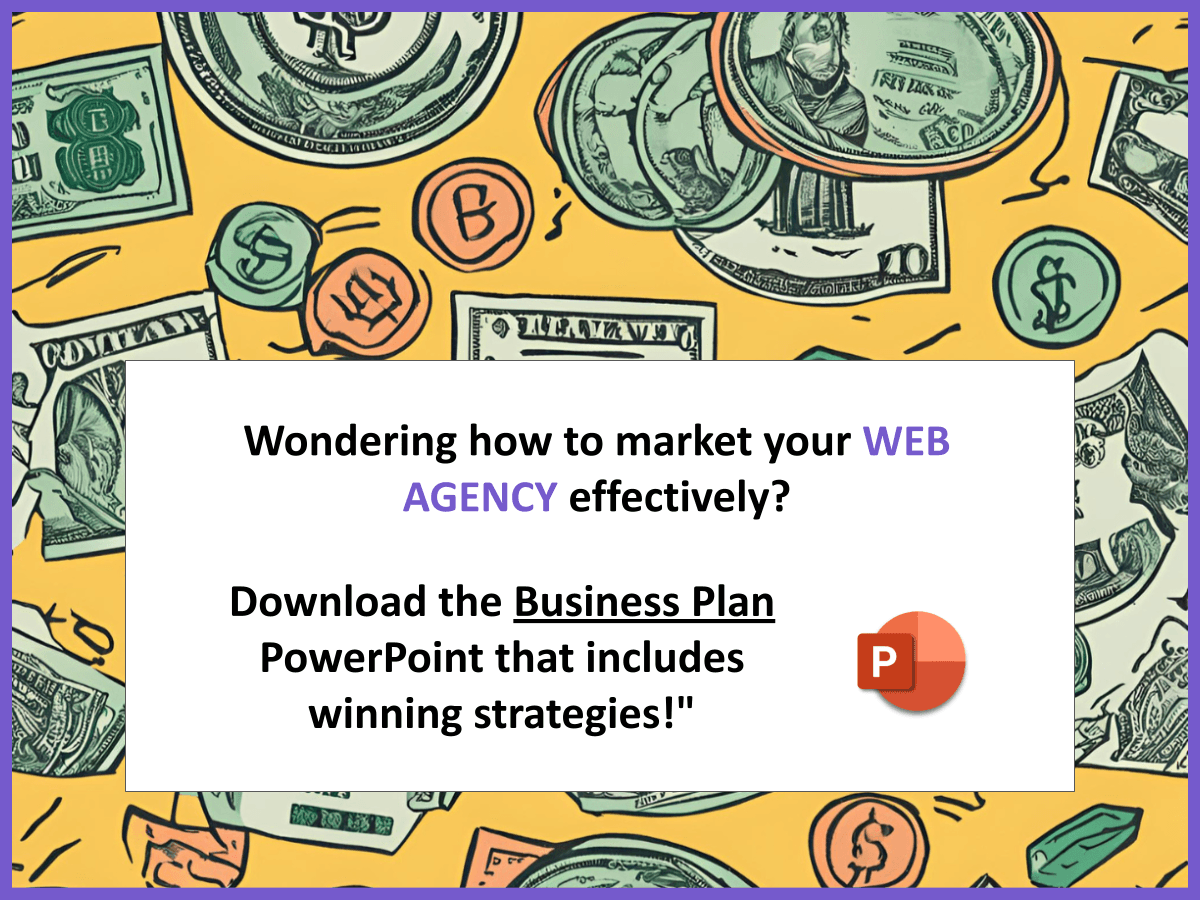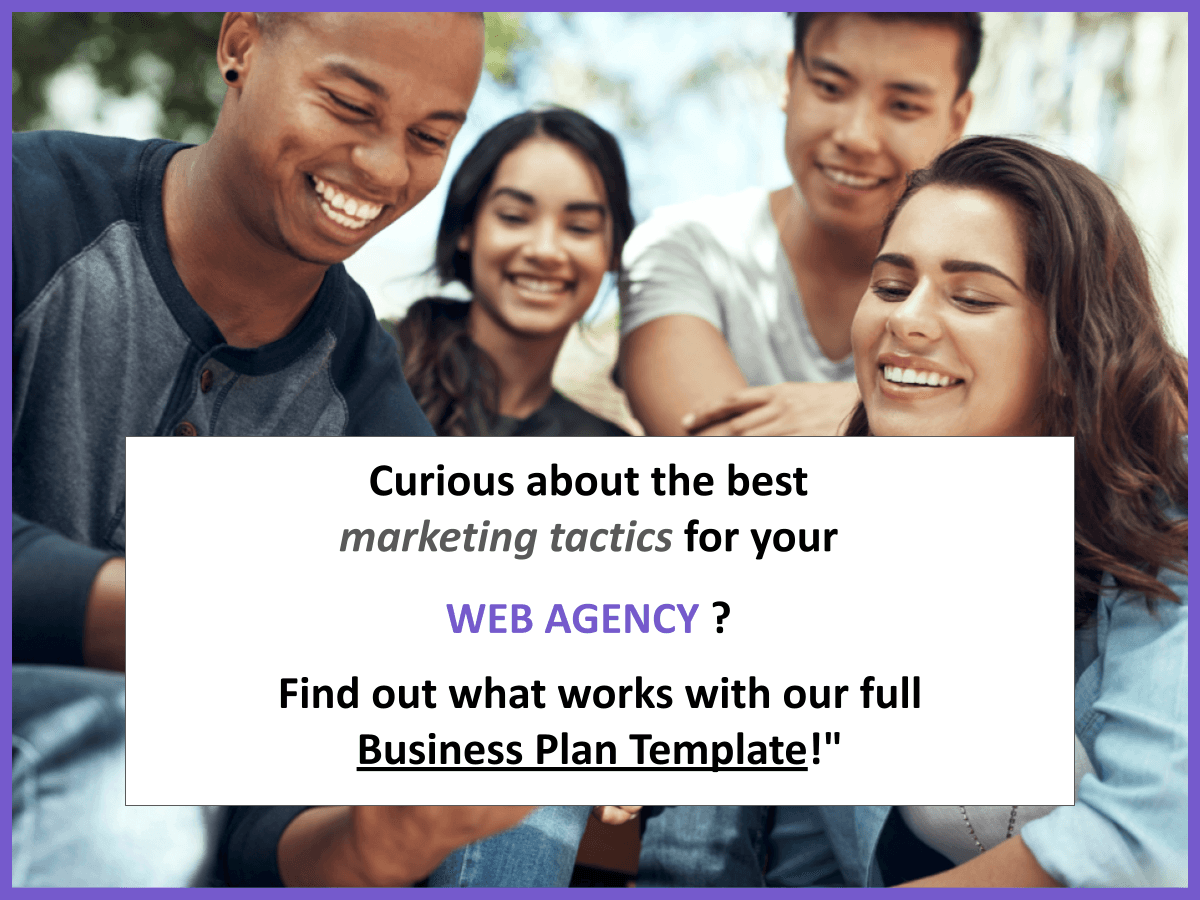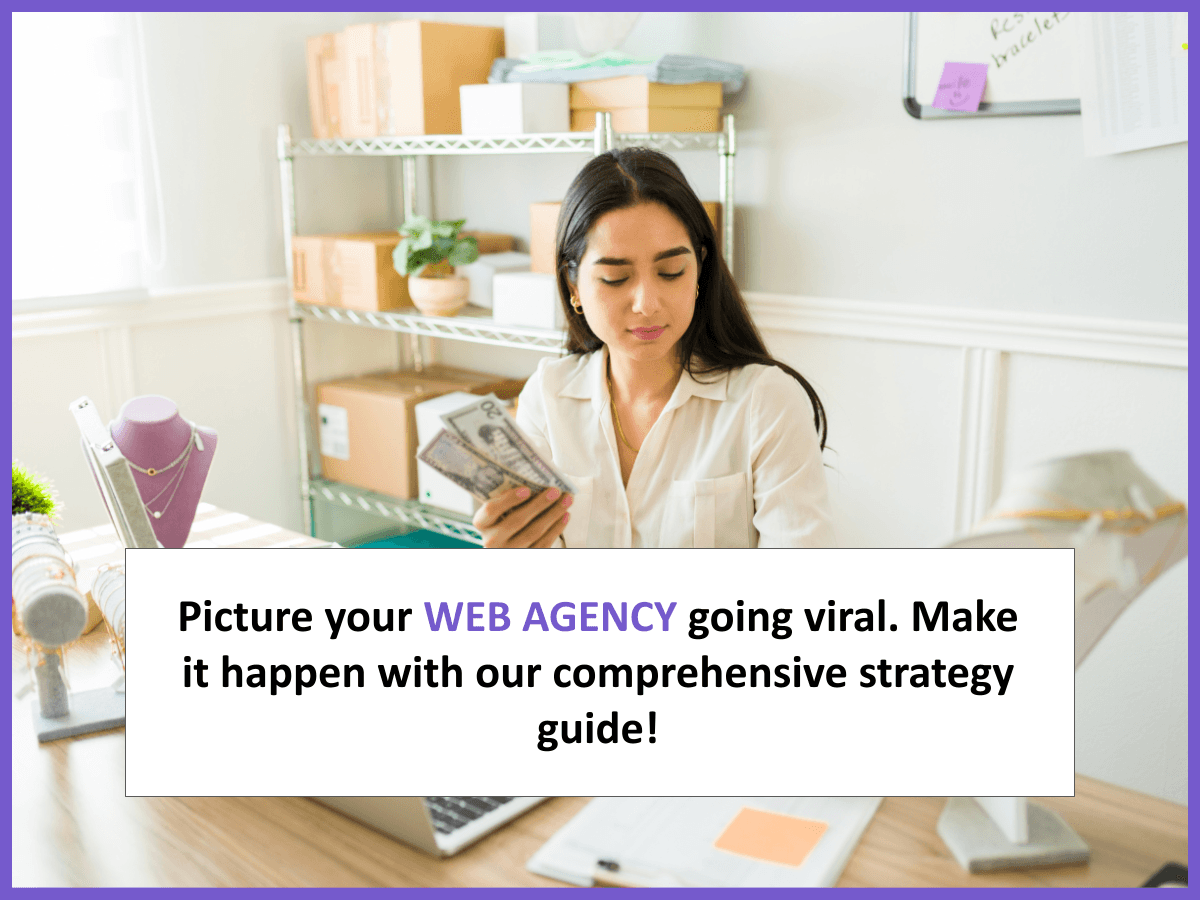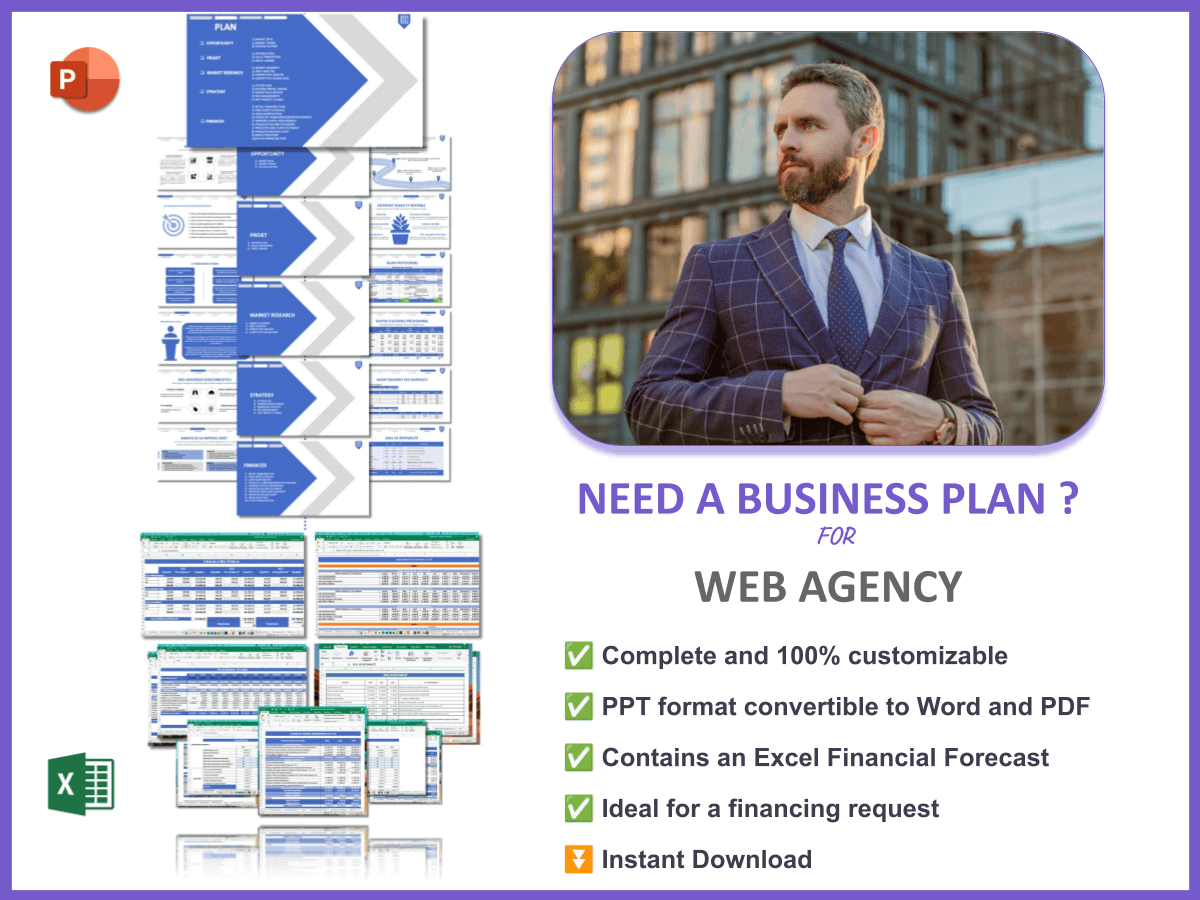Are you struggling to create a successful Web Agency Marketing Plan? You’re not alone! Many web agencies find themselves lost in the sea of marketing strategies, unsure of how to effectively reach their target audience and convert leads into clients. A well-structured marketing plan is essential for your agency’s growth and success.
A Web Agency Marketing Plan is a strategic document that outlines your agency’s marketing goals, target audience, and the tactics you’ll use to achieve those goals. It’s like your roadmap to success, guiding your efforts and ensuring that every marketing dollar is spent wisely.
1. Define Your Target Market
| Aspect | Description |
|---|---|
| Demographics | Age, gender, income, education level, etc. |
| Location | Where your potential clients are based |
| Interests | What your target audience is passionate about |
Identifying your target market is crucial. It helps you tailor your marketing messages to resonate with your audience. Consider factors like demographics, location, and interests to build a comprehensive profile.
For instance, if your agency specializes in web design for e-commerce businesses, your target market may include young entrepreneurs aged 25-35 who are tech-savvy and looking to launch their online stores. Knowing this allows you to create personalized marketing campaigns that speak directly to their needs.
2. Understand Your Ideal Customers
| Criteria | Details |
|---|---|
| Needs | What problems does your agency solve? |
| Behaviors | How do they interact with similar services? |
Your ideal customer is the one who not only needs your services but also appreciates your unique value proposition. Dive deep into their needs and behaviors to understand how to connect with them effectively.
For example, if your ideal customers are small business owners, consider what challenges they face. They might struggle with online visibility or managing their social media accounts. Understanding these pain points enables you to position your services as the solution they’ve been searching for.
3. Analyze Your Competitors
| Competitor | Strengths | Weaknesses |
|---|---|---|
| Competitor A | Strong online presence | Poor customer service |
| Competitor B | Wide range of services | High pricing |
| Competitor C | Excellent client testimonials | Limited marketing reach |
Knowing your competitors is vital for crafting a successful Web Agency Marketing Plan. It helps you identify opportunities and threats in the market. Analyze their strengths and weaknesses to position your agency strategically.
For example, if you find that a competitor has a strong online presence but lacks in customer service, you can leverage this gap. By emphasizing your agency’s commitment to exceptional customer support, you can attract clients who value that aspect. Additionally, consider conducting a SWOT analysis (Strengths, Weaknesses, Opportunities, Threats) to gain deeper insights into your competitive landscape.
4. Establish Clear Marketing Objectives for Your Web Agency
| Objective | Key Performance Indicators (KPIs) |
|---|---|
| Increase website traffic | Percentage increase in visitors |
| Generate leads | Number of inquiries |
| Improve conversion rates | Percentage of visitors who become clients |
Setting SMART (Specific, Measurable, Achievable, Relevant, Time-bound) objectives is essential to guide your marketing efforts. Clear goals help you track progress and adjust strategies as needed.
For instance, instead of saying “I want more clients,” a SMART objective would be “Increase client inquiries by 30% over the next six months through targeted social media campaigns.” This level of specificity allows you to create actionable steps and measure success accurately.
5. Choose Effective Marketing Strategies for Your Web Agency
| Strategy | Description |
|---|---|
| Content Marketing | Create valuable content to attract your audience |
| Social Media Marketing | Engage with clients on platforms they use |
| Email Marketing | Send personalized messages to nurture leads |
Based on your objectives, select strategies that align with your target market’s preferences. A mix of digital marketing channels can maximize your reach and impact.
For example, if your target audience frequently uses social media, focus on creating engaging posts and ads on platforms like Instagram and Facebook. Alternatively, if they prefer in-depth content, consider writing blog posts or creating informative videos. The key is to tailor your marketing strategies to your audience’s habits and preferences.
6. Evaluate and Adjust Your Approach
| Evaluation Method | Details |
|---|---|
| Analytics Tools | Use tools like Google Analytics to track performance |
| Surveys | Gather feedback from clients to improve services |
| Social Media Insights | Monitor engagement metrics on social platforms |
Regularly evaluating your marketing plan’s effectiveness is crucial. Use data and client feedback to refine your strategies and ensure you’re meeting your goals.
For instance, if you notice that your blog posts are not driving traffic as expected, consider adjusting your content strategy by incorporating trending topics or optimizing for SEO. Additionally, conducting surveys can provide valuable insights into client satisfaction and areas for improvement. Remember, flexibility is key; adapting your approach based on performance data will keep your agency competitive and responsive to market changes.
This example provides a targeted approach for a web agency focusing on tech startups. By identifying this niche, the agency can tailor its marketing efforts to address the specific challenges faced by these businesses.
For instance, tech startups often struggle with establishing a strong online presence. The agency can create content that speaks directly to these pain points, such as blog posts about optimizing websites for user experience or guides on leveraging social media for brand visibility. Additionally, utilizing pay-per-click (PPC) advertising can help generate immediate leads, while SEO efforts work toward long-term organic growth.
9. Example N°3 of Marketing Plan for a Web Agency
| Steps | Actions | Details |
|---|---|---|
| 1 | Target Market | Focus on small businesses |
| 2 | Ideal Customers | Identify local service providers |
| 3 | Competitors | Assess their online presence |
| 4 | Marketing Objectives | Achieve 15% growth in clients |
| 5 | Marketing Strategies | Use social media and email campaigns |
| 6 | Evaluation | Track engagement metrics |
This marketing plan example targets small businesses, which often require tailored web solutions to compete effectively in their markets. By focusing on local service providers, the agency can create a strong community presence.
For instance, the agency might develop case studies showcasing successful projects with similar businesses. This approach not only builds credibility but also demonstrates the agency’s understanding of the unique challenges faced by local service providers. Engaging them through social media platforms and personalized email campaigns can further enhance relationships and drive client acquisition.
10. Example N°4 of Marketing Plan for a Web Agency
| Steps | Actions | Details |
|---|---|---|
| 1 | Target Market | Identify e-commerce businesses |
| 2 | Ideal Customers | Focus on online retailers |
| 3 | Competitors | Analyze leading e-commerce agencies |
| 4 | Marketing Objectives | Increase web traffic by 25% |
| 5 | Marketing Strategies | Implement influencer marketing |
| 6 | Evaluation | Use conversion rates to assess success |
This example is tailored for a web agency focusing on e-commerce businesses, which have specific needs for their online platforms. By targeting online retailers, the agency can provide specialized services that enhance their clients’ sales potential.
For example, implementing influencer marketing can help e-commerce clients reach wider audiences and drive traffic to their websites. Additionally, the agency should focus on optimizing websites for conversions, ensuring that visitors can easily navigate and purchase products. By tracking conversion rates, the agency can continuously refine its strategies to maximize client success.
11. Example N°5 of Marketing Plan for a Web Agency
| Steps | Actions | Details |
|---|---|---|
| 1 | Target Market | Focus on educational institutions |
| 2 | Ideal Customers | Identify decision-makers in schools |
| 3 | Competitors | Evaluate educational service agencies |
| 4 | Marketing Objectives | Gain 10 new clients within a year |
| 5 | Marketing Strategies | Utilize webinars and online workshops |
| 6 | Evaluation | Analyze attendance and engagement rates |
This marketing plan example is geared towards a web agency that serves educational institutions. By focusing on this niche, the agency can tailor its offerings to meet the specific needs of schools and universities.
For instance, hosting webinars and online workshops on topics such as digital marketing for education or website best practices can establish the agency as an authority in the space. This not only helps in gaining visibility but also allows the agency to connect directly with decision-makers in educational institutions. Tracking attendance and engagement during these sessions will provide insights into the effectiveness of this approach.
12. Example N°6 of Marketing Plan for a Web Agency
| Steps | Actions | Details |
|---|---|---|
| 1 | Target Market | Focus on non-profit organizations |
| 2 | Ideal Customers | Identify their funding sources |
| 3 | Competitors | Review other non-profit service providers |
| 4 | Marketing Objectives | Increase awareness by 30% |
| 5 | Marketing Strategies | Leverage partnerships and community events |
| 6 | Evaluation | Measure engagement through events |
This example targets non-profit organizations, a sector that often requires specialized web services to effectively communicate their missions and engage donors. By understanding their funding sources, the agency can tailor its offerings to help non-profits maximize their online fundraising efforts.
For instance, leveraging partnerships with local businesses and participating in community events can enhance visibility and credibility within the non-profit sector. Additionally, measuring engagement through these events will provide valuable feedback on the agency’s outreach effectiveness.
13. Example N°7 of Marketing Plan for a Web Agency
| Steps | Actions | Details |
|---|---|---|
| 1 | Target Market | Identify health and wellness brands |
| 2 | Ideal Customers | Focus on emerging health startups |
| 3 | Competitors | Assess agencies serving health brands |
| 4 | Marketing Objectives | Expand client base by 15% |
| 5 | Marketing Strategies | Engage through health-focused content |
| 6 | Evaluation | Track client acquisition metrics |
This final example highlights a web agency focusing on health and wellness brands. By identifying emerging health startups as the target market, the agency can position itself as a go-to resource for these businesses.
For example, creating health-focused content, such as blog posts, videos, or podcasts, can attract the attention of potential clients in the wellness industry. Tracking client acquisition metrics will help the agency understand which strategies are most effective and where adjustments may be necessary.
Conclusion
Creating a successful Web Agency Marketing Plan is essential for any agency looking to thrive in a competitive environment. By defining your target market, understanding your ideal customers, analyzing your competitors, and establishing clear marketing objectives, you can set your agency on a path to success. Don’t forget to choose effective marketing strategies and regularly evaluate your approach to adapt to changing circumstances.
If you’re serious about building a solid foundation for your web agency, consider utilizing a comprehensive business plan template. Check out this business plan template for a Web Agency that can streamline your planning process and help you achieve your goals.
For further insights, you might find our articles helpful: learn how to get started with your agency by reading How to Create a Web Agency?, and explore how to conduct a SWOT analysis tailored to your agency in our article How to Create a SWOT Analysis for Web Agency.
FAQ
- What is a Web Agency Marketing Plan?
A Web Agency Marketing Plan is a strategic document that outlines your agency’s marketing goals, target audience, and the tactics you will use to achieve these goals. - Why is a marketing plan important for a web agency?
A marketing plan is essential because it provides a roadmap for your agency’s growth, helping you to allocate resources effectively and measure your success against specific objectives. - How do I identify my target market?
To identify your target market, consider demographics, location, and interests. Conduct surveys or research to gather data about potential clients who might benefit from your services. - What strategies should I include in my marketing plan?
Include strategies such as content marketing, social media marketing, email campaigns, and SEO. Tailor these strategies to align with your target market’s preferences. - How often should I evaluate my marketing plan?
Regular evaluations, ideally on a monthly or quarterly basis, help you track performance and make necessary adjustments to improve effectiveness. - What are SMART objectives?
SMART objectives are Specific, Measurable, Achievable, Relevant, and Time-bound goals that guide your marketing efforts and help measure progress. - How can I analyze my competitors?
Analyze competitors by reviewing their online presence, strengths, weaknesses, and the services they offer. Tools like SWOT analysis can be beneficial for this purpose. - What metrics should I track to measure success?
Track metrics such as website traffic, lead generation, conversion rates, and client acquisition metrics to assess the effectiveness of your marketing strategies. - What is the best way to engage with clients?
Engagement can be achieved through personalized communication, valuable content, and active participation on social media platforms where your audience is present. - How can I adapt my marketing plan over time?
Stay flexible by monitoring market trends, gathering feedback from clients, and analyzing your performance data. Adjust your strategies based on what is working and what is not.

